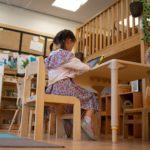 The Covid-19 pandemic saw schools around the world shut to try and limit the spread of the virus, with children taught virtually for prolonged periods. This prompted many to argue that not only were many children not able to participate virtually, for various reasons, but even for those who could, the experience was an unsatisfactory one.
The Covid-19 pandemic saw schools around the world shut to try and limit the spread of the virus, with children taught virtually for prolonged periods. This prompted many to argue that not only were many children not able to participate virtually, for various reasons, but even for those who could, the experience was an unsatisfactory one.
Despite this, new research from the University of Colorado suggests that the learning experience may not have been as bad as we think. The researchers spoke to a nationally representative sample of 1,700 parents and found that just 44% of them thought the online learning experience asked too much of them, with 38% saying they struggled to manage the online provisions.
What is also clear, however, is that the quick rollout did leave some behind, with 63% of parents fearing that the shift to online learning caused their child to fall behind.
Shift online
During the pandemic, 80% of schools moved at least some of their learning online. The study finds that most parents rated these programs as effective, although 67% of parents also said that they required daily engagement. In reality, this meant up to 2.5 hours per day being spent helping children with their schoolwork.
Without classes, parents reported that their children would often spend time watching television or playing games. Just 28% of children were engaged in any kind of learning devised by their parents.
There was a divergence between school types, however, with private schools being more responsive, engaged, and innovative. They were followed by charter schools, with traditional public schools bringing up the rear.
In the longer term, the Covid experience doesn’t appear to have bolstered support for homeschooling, but it does appear to have garnered support for virtual schools, with over a third of parents saying they plan to send their child to one.
“This suggests if there was going to be a significant shift in the education sector, it would be to virtual schools rather than homeschooling, and the shift would likely be temporary, assuming COVID-19 is mitigated,” the researchers explain.
Best practice
The researchers believe their findings provide some lessons to take forward to help ensure remote learning is effective in the future. For instance, the best schools were those that communicated well with students, created real-time programs, and set high expectations of students.
They hope that as remote learning begins to be applied more both nationally and internationally, these best practices can begin to be both applied and refined.
“Despite the better-than-expected experience in the spring, many parents we surveyed were still concerned about their child’s academic future because of school closures. Schools need to apply lessons learned from this study to provide the best and most equitable remote learning possible under circumstances like this,” they conclude.